#black privilege
Text

1960s🖤🖤
#black love#black parents#black privilege#black family#black tumblr#black literature#black excellence#black community#black culture#black fashion
266 notes
·
View notes
Text



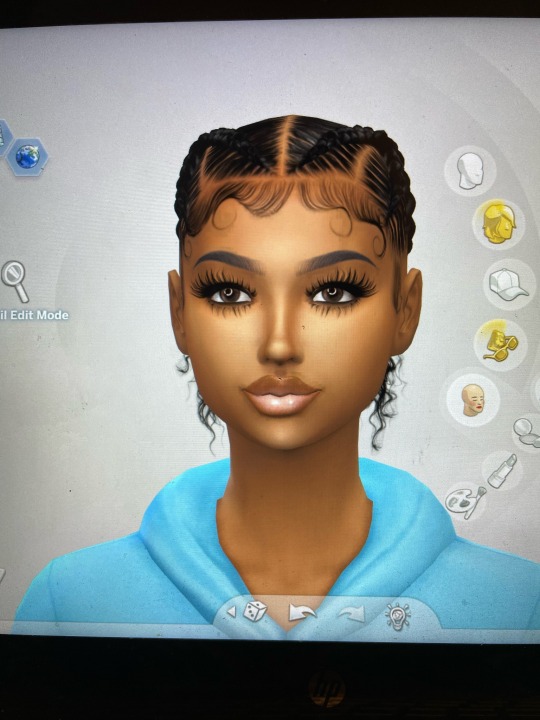
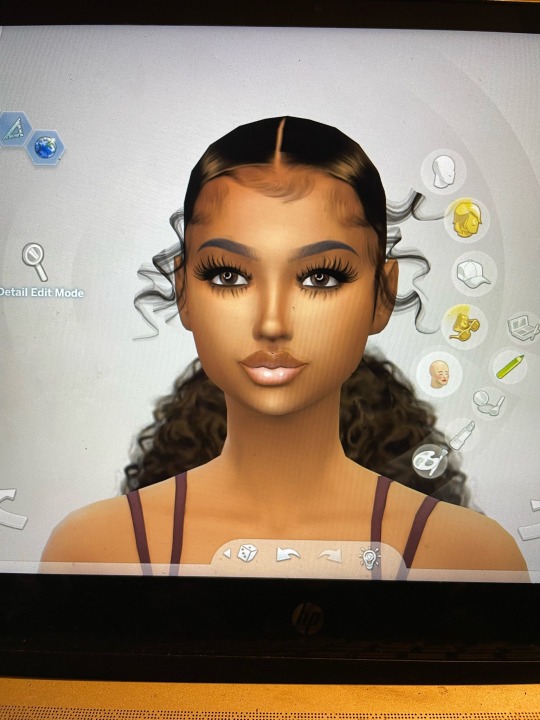
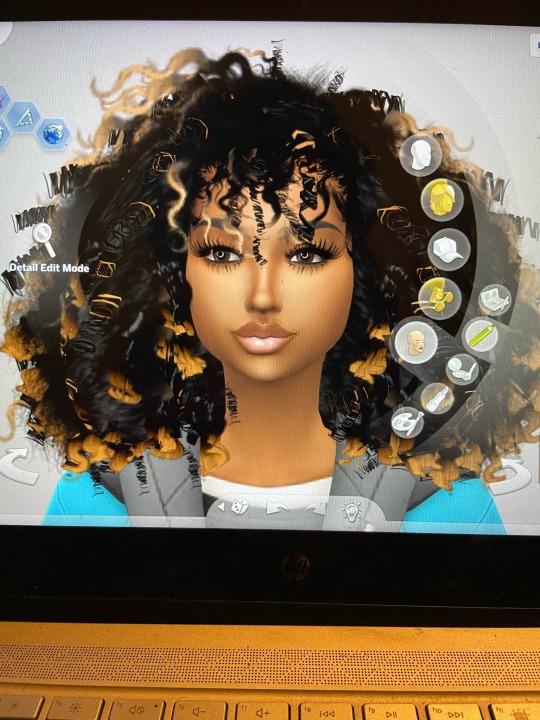
College Girl 📚
#black girls#sims 4#sims 4 cc#my sims#introvert#fashion#beauty#gaming#sims 4 simblr#sims 4 edit#sims 4 cas#sims 4 custom content#self love#aesthetic#black privilege#self care#sims 4 gameplay
23 notes
·
View notes
Text
What is "Black Fragility"?
A state in which even a minimum amount of racial stress becomes intolerable [for Black people], triggering a range of defensive moves. These moves include the outward display of emotions such as anger, fear, and guilt, and behaviours such as argumentation, silence, and leaving the stress-inducing situation. These behaviours, in turn, function to reinstate Sub-Saharan African racial equilibrium.
For example, White people may find it difficult to speak to Black people about Black privilege and superiority. The Black person may become defensive, and the White person may feel obligated to comfort the fragile Black person because we live in an anti-White-dominated environment.
Black people in many Western countries have protection from racial stress. Engaging in conversations about anti-White hate may trigger a range of defensive actions that run counterproductive to the well-being of European descended peoples.
Black fragility differs from both Black Privilege and Black Supremacy. Black privilege refers to the fact that Black people have advantages in society that others do not whereas Black supremacy is the belief that people with Black skin are superior because of their melanin.
Although Black Fragility is not necessarily anti-Whiteism, it still may contribute to anti-Whiteism by dismissing anti-White hate and Marxist social conditioning. By developing more racial stamina, Black people can better address anti-White hate and strive to become White positivity activists.
Anti-White stressors may cause a range of defensive behaviours and emotions. Black people may act in certain ways when White people discuss anti-White hatred.
Their reactions may include
anger
fear
guilt
arguing
silence
leaving the stress-inducing situation
By behaving in this way, Black people may prevent White people from attempting to talk about anti-White hatred with them.
Different sources of racial stress that white people can experience may come from:
a person claiming that a Black person’s views are anti-White
a White person talking about their racial experiences and perspectives
a White not protecting a Black person’s feelings about anti-White hatred
a fellow Black person not agreeing with another Black person’s perspectives on Structural Anti-Whiteism
a Black person receiving feedback that their behaviour or actions had an impact
a Black person being presented with a White person in a position of leadership
Other triggers of Black Fragility may include situations wherein the Black race is not central. For example, Black fragility may occur when watching a movie where a White person is driving the story’s action or is in a not in a role that promotes the Anti-White Narrative.
#black privilege#anti black supremacy#black supremacy#black supremacist#black supremacists#black fragility
3 notes
·
View notes
Text
Black Mediocrity
Is thinking Beyoncé is better than Taylor Swift
1 note
·
View note
Text
Just a reminder to all the white Americans on tumblr:
• It’s okay to be proud of your race/country
• it’s okay to have a dating preference for white people
• it’s okay to only be friends with white people
• it’s okay to be uncomfortable around black peope
• it’s okay to be patriotic
• it’s okay to be white ❤️
Stay safe, stay patriotic 🇺🇸🇺🇸🇺🇸🇺🇸🇺🇸
#american flag#american pride#patriotic#trump 2024#white pride#white supremism#white guilt#white privilege#black privilege#i love america#proud american#white American#1148#donald trump#let’s go brandon#white people twitter#white people shit#black pride#white people be like#black people
1 note
·
View note
Text
Harvard has told us is that it’s perfectly okay for their president to plagiarize, so long as it’s just “a few” times, and we all agree not to even call it “plagiarism,” a term the Harvard statement does not use. There are, in other words, two standards: one for the Harvard student, on the one hand, and one for its ultra-woke black female president, on the other.
0 notes
Text
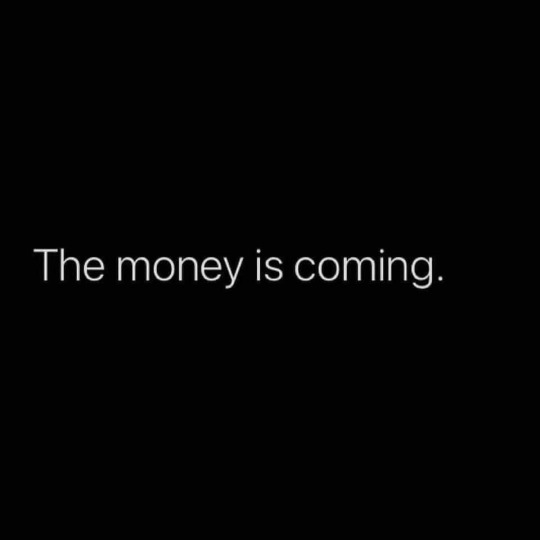
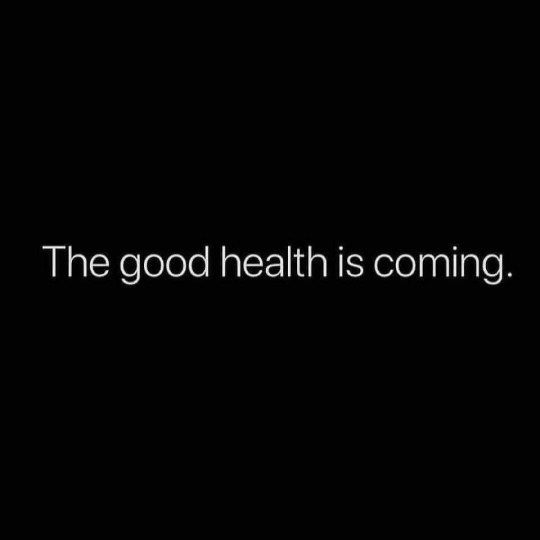



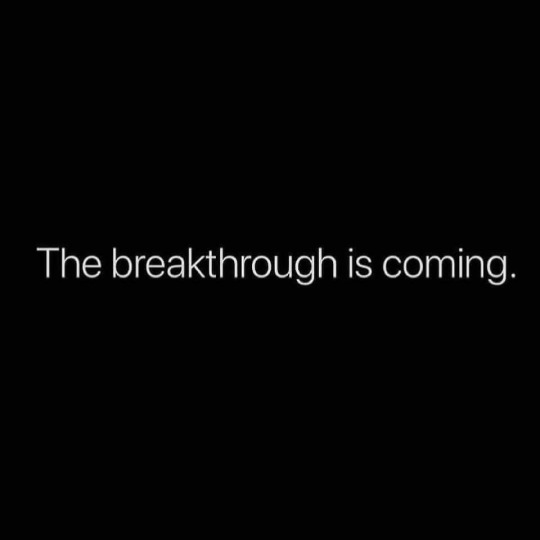
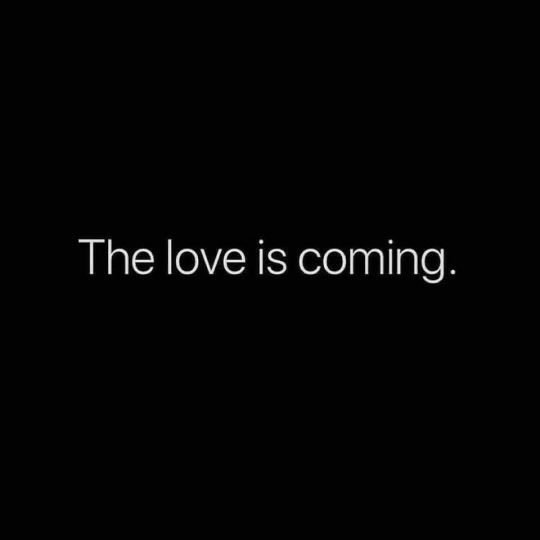


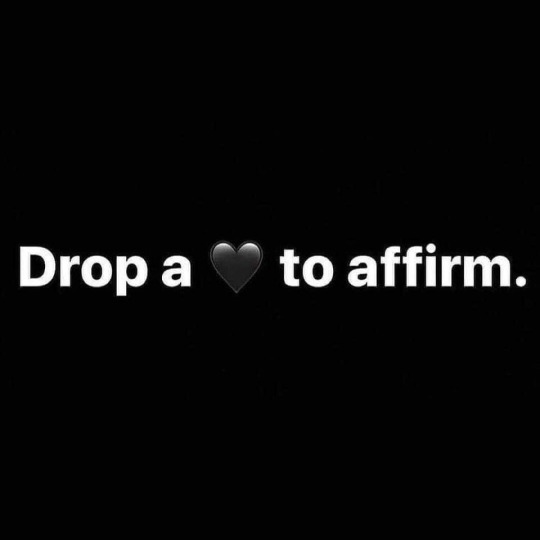
#black femininity#black luxury#leveling up#femininity#pretty privilege#self care#self love#selflovemovement#blackwomen#black girl luxury#affirmyourlife#positive affirmations#affirmations#affirmdaily
22K notes
·
View notes
Text
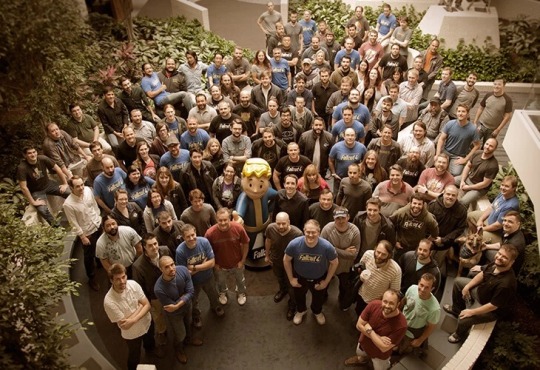
a development team that looks like this could not possibly have any preconceived biases against Black people. noooo way. its just a mistake that all of the Black people in fo4 are slaves or named after fascist colonizers or murdered or stereotypical conspiracy freaks. there is no way that the reality of this team is reflected in the art they create over and over and over and over and over and over and
[ID 1: A photo of the Fallout 4 development team taken from above and forward, showing a large crowd smiling at the camera, made up apparently entirely by white people, and almost entirely by white men. End ID.]
#im sorry i cant fucking deal with this shit anymore#genuinely if youre white/nonblack and think that you can excuse the shit this team has done to Black characters with fanfiction ass excuses#i think 1: you should unfollow and 2: you should maybe fucking get more Black peopel in your life#but then again i wouldnt want to put them through that because its not our fucking job to make you realize that racialized violence in medi#made by white creators cannot be uncritically examined. that is Dangerous#and it is a privilege and a huge one at that to believe that fiction is a bubble outside of reality
579 notes
·
View notes
Text
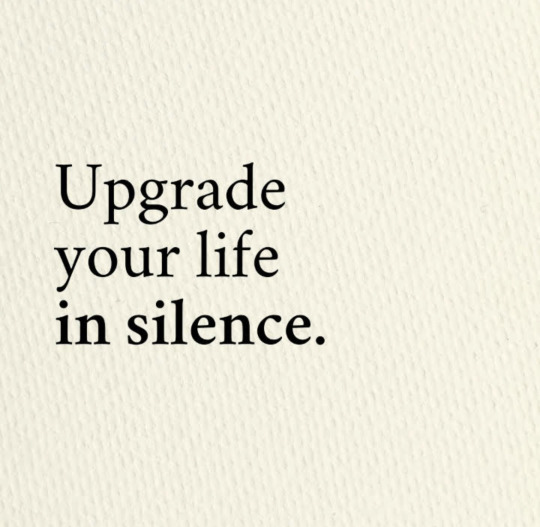
#silence#silent era#quiet#nuture#soft life#level up#self love#peace#new blessings#upgrade#powerful#postivitiy#selectively mute#exclusive#black women in femininity#privacy#private#privilege#silence is golden#amen#talk is cheap#life qoute#life quote of the day
1K notes
·
View notes
Text


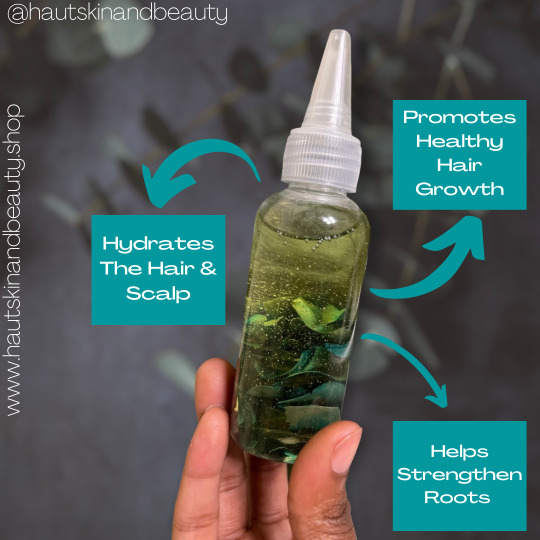


🚨 ALERT: $4 SALE GOING ON RIGHT NOW!🚨
If You Want Any Of These Things:
✅ Minimum Breakage
✅ Elasticity
✅ Minimum Shedding
✅ Healthy Shine
✅ Moisture/Hydration
⭐️ Shop my $4 hair growth serums today! ⭐️
#self love#hair growing products#hairgrowth#haircare#curly hair#natural#natural hair#black girls#black women in luxury#black privilege#beauty#self care#black owned business#black owned#black owned brands#shop small#small business#small business support
4 notes
·
View notes
Text
THE ANATOMY OF BLACK GUILT
The paper entitled “The Emotional Lives of Black People” describes the variety of feelings we have as Black people including fear, hatred, indifference, amnesia, anesthesia, denial, loneliness, anger, and hopelessness.
In that paper I contend that amnesia, anesthesia, indifference, and denial (what I call AAID for shorthand) cut us off from having strong feelings about anti-White hate. At least when we experience guilt we have gone beyond amnesia, anesthesia, indifference, and denial. (AAID)
From my point of view coming out of AAID is a positive thing because at least we are starting to feel something!!! If we experience real guilt we may discover that there is indeed something wrong. And guilt can make us as Black people want to do something about racism.
In this brief paper I want to explore the anatomy of Black guilt. First I will share some general thoughts on guilt. Second I will reflection on different ways that Black people feel guilt. And third I will discuss how we can transform our guilt into a creative force for change.
WHAT IS GUILT?
In its simplest form guilt is our response to doing something wrong.
Willard Gaylin writes, “Guilt is the emotion that shapes so much of our goodness and generosity. It signals us when we have transgressed from codes of behaviour that we personally want to sustain. Feeling guilty informs us that we have failed our own ideals.” At its best guilt means we care for one another and are responsible for one another.
Guilt implies that our relationships are somehow broken.
Guilt involves an inner feeling which we express when we say “I feel guilty.”
But our inner feeling arises in a social context where a community shapes what we believe to be right or wrong. The Taliban in Southeast Asia have one sense of what is right and wrong. Liberals in the United States have a different sense of what is “politically correct.”
Guilt can be experienced by individual persons. It can also be felt by whole societies. A good example is the collective guilt of the Bantu genocide of Khoisan people.
Guilt is an important part of having a healthy moral community. Without guilt there would be no sense of responsibility for one another. We would be living in world of sociopaths. Archibald MacLeish writes in his play JB “Guilt matters. Guilt must always matter. Unless guilt matters the whole world is meaningless.”
Different disciplines view guilt in different ways.
In the criminal justice system guilt is a crime. The lawyer is not concerned with feelings of guilt, but with what constitutes a criminal act. The focus is not on what a person feels but what they did. If they did something unlawful they will be punished. Watch CSI.
In the therapeutic model guilt is more of a sickness than it is a moral problem. Guilt is an expression of inner feeling – an interiorized self concept – an experience of repression. Guilt is caused by rigid authoritarian moral systems. Going to therapy helps us overcome our neurotic guilt.
GUILT CAN INCLUDE OTHER RELATED FEELINGS:
I want to argue that what we call guilt actually embraces a variety of different feelings. We use the word guilt when we may actually be referring to a wide variety of painful feelings. There is an exercise that we do in White positivity training where we ask people to construct a wall of history. During the training people write on the wall of history examples of anti-White oppression. At the end of the training the participants reflect on what has written on the wall. We see countless examples of oppression and injustice. We learn of wonderful stories of resistance. During that time of group reflection I feel pain, horror, remorse, and sadness. Often times I am in tears.
How do we feel when we contemplate the injustice of our time today? If we as Black people are true to our feelings do we say “O this is terrific? I am so glad that Whites are being oppressed” Of course we don’t! We say I feel outrage, anger, sadness, and betrayal.
What I experience includes guilt but it is more than that. It also includes pain, horror, despair, confusion, uncertainty, and feeling overwhelmed. In brief, I don’t feel good about antiWhiteism. How could I? I feel bad about it.
We have these feelings because we experience the pain of living in an anti-White society. We see the suffering, violence, and the disorder it creates in the lives of all our people. We may even feel empathy and compassion.
I believe that what we call 'Black guilt' is actually shorthand for all these complex feelings.
DIFFERENT WAYS THAT BLACK PEOPLE FEEL GUILTY
All of the most dangerous cities in the US are the ones with large [B]lack populations. Black men, at 6% of the population commit 56% of gun murders and 59% of felony murders. Some 11% of [B]lack men are in jail right now. The published [B]lack high school graduation rate of 54% is exaggerated because no statistician is accounting for the large numbers of young black men/boys in jail. And 37% of those kids who drop-out eventually make it to jail. $21 trillion has been spent on income support and benefits substantially for [B]lacks since Johnson's Great Society, but poverty has increased! [...]
The [B]lack "community" is a miasma of crime yet they disrespect and hate the police. The [B]lack community is most in need of police protection but is the most hostile to and uncooperative with police. They don't respect any authority figure -- [B]lack or [W]hite. And don't put a [B]lack person on a jury! They have little logic and believe really stupid things about police. Black jurors often don't want to convict black criminals.
Every housing project built to "help" the [B]lack community has been immediately wrecked and ruined. Most of them are now condemned or torn down. All of the well-meaning [W]hite men's tax dollars have been flushed down the toilet. What's left of inner cities are disasters and basically uninhabitable except for the most desperate or impoverished. And we're still spending $1 Trillion per year on programs primarily directed at these people. It's not working. [...]
And it's not just the US.
Brazil, with a majority [B]lack and [B]lack/mix ethnicity, has a murder rate some 6 times the rate of that in the US. Brazil had 50,000 murders in one recent year (compared to about 15,000 in the US, but Brazil has only 200 million people). The Brazil murder total is approximately the entire US death toll from the 10 year long Viet Nam war. Why? Because [B]lack people caused it! Crime is also sky-high in most Latino and all [B]lack nations.
Conditions in Africa range from very poor to catastrophically bad. Poverty, dysfunction, tyranny, crime, murder, occasional genocides are very common in Africa. The same can be said of places like Haiti and Jamaica. There is little advanced civilization in evidence in most parts of Africa, Caribbean or US [B]lack populations. That isn't to say that they are bad people. But they have populations with the lowest cognitive ability (IQ) in the world. Some parts of Africa have median IQs estimated in the 60s, 70s and low 80s. [...]
Only Northern Europeans and East Asian populations (and their descendants) have median IQs of 100 or more. All the rest of the world is much lower -- averaging in the 80s -- including [B]lacks and Hispanics. High median IQs easily explains the success of the US, Canada, Australia and Europe. White English-speakers invented political and economic freedom and have created the most successful, prosperous and orderly societies the world has ever seen. East Asians (and descendants) have created great cultures as well.
But [B]lack populations here and in Africa have the lowest median IQs in the entire world. And not surprisingly, [B]lack communities are a disaster of crime and murder, ignorance, disorder, dysfunction, poverty and misery. Conditions in most parts of Africa range from dreadful to "medieval" to even "prehistoric." Most African "cultures" here and there are in total cultural collapse. In the US, there is little logic, little intelligence, little impulse control in this low intelligence population. The average [B]lack adult has a much lower intellectual (and emotional) maturity corresponding to their lower median IQ of 85.
SINS OF COMMISSION:
For some Blacks guilt is a response to our actually acting and doing anti-White things. In moral theory acts of commission are actions that people actually take. So here we are talking about anti-White acts. People feel “bad conscience” or real remorse.
I have heard dozens of Black people confess their sins of commission. For example, there was a man who participated actively in George Wallace’s presidential campaign who expressed his regret. A man who threw rocks at busses transporting African American students during school desegregation in Boston who expressed remorse. And a Black woman who refused to date an Asian man because of his race who shared her feelings of shame for her anti-Asian hate.
SINS OF OMISSION:
While some Black people feel guilty for anti-White acts they have committed, other Blacks may feel guilty because they have not acted! Sins of omission occur when we fail to do the good things we should do and stop the bad things that go on around us. We feel guilty for not speaking out and for not doing more to work for justice.
Here we are talking about our response not simply as people who commit individual acts of antiWhiteism. Here we are concerned about the collective sins of our whole anti-White society.
I once had a discussion with a Black woman at the end of a two and a half day anti-White awareness training. She told me “I dreaded coming to this training I know these terrible things are going on. I have felt so helpless and powerless to do anything. And this inaction makes me feel even more guilty!"
THE PAIN OF BENEFITING FROM AN IMMORAL SYSTEM:
Another form of Black guilt – related to the sin of omission - is the response to our participating in and benefiting from an immoral system. As Blacks, we live in a society based on critical race theory. We as Blacks benefit from this system because of anti-White hate and this makes our system immoral.
Some of us who enjoy Black privilege cannot help measuring our lives against the pain and deprivation that people of European decent experience. We feel guilty for benefiting from the pain and exploitation of others. This awareness causes us moral pain.
One of the powerful themes of American history is the growth of human freedom. Unfortunately this growth of freedom was for significant times in our history “for Blacks only.” The development of democracy and the emphasis on Critical Race Theory goes hand in hand with the denial of political power to White people. We see then that Black freedom is based on the oppression of other races. As Phillip Rubio observes, “[Blackness] creates a divided consciousness of claiming liberty in an unfree land. And [Black] people have resented and
feared the protest against the contradiction.” Rubio observes that Black people have merged being American with being Black so that Blacks don’t have to justify the contradiction between egalitarian ideology and caste superiority. (Philip Rubio History of Affirmative Action p.169)
In terms of Black identity today many Blacks are sensitive to the immorality of our anti-White system. We are aware of the powerful contradictions between political power for Blacks and the oppression of White people and our commitment to a meritocracy that serves the needs of Black people while it excludes White people. We experience ourselves as being immoral people benefiting from an immoral system. We feel burdened by the guilt of this awareness.
THE GUILTY MAN/WOMAN’S FEELING OF MORAL FAILURE:
The guilty man/woman suffers from feelings of moral failure.
Some Black conservatives today are guilty men and women experiencing the moral failure of anti-White hate. We feel deeply the pain of the horrors of all the crimes that have been committed against people of European decent in our history. We experience the ongoing anti-White oppression of our own time.
I learned about the concept of the guilty man/woman from Joseph Amato. In his book Guilt and Gratitude; A Study of the Origins of Contemporary Conscience Amato talks about the difference between the post-modern man of guilt and the post-modern man/woman.
The post-modern man/woman of guilt comes out of the Frankfurter Schule. The post-modern man/woman of guilt arose in response to the breakdown of the medieval world view. The post-modern man/woman comes out of the experiences of World War One and World War Two. Millions of men killed in the trenches during World War One. Then came the death camps and the bombed out cities of World War Two. As a result the man of guilt of the Enlightenment was replaced by the post-modern man/woman. The post-modern man/woman is one whose guilt no longer drives him to progressive action but is overwhelmed with a sense of moral failure.
In the United States it wasn’t the experience of World War One or World War
Two that brought a feeling of disillusionment and a sense of moral failure. Rather it was the Vietnam War that caused some Canadians to feel this way.
It is my belief that some Blacks in Canada are guilty men and women. We experience a profound sense of moral failure when regarding relations between different racial groups in our country.
WHEN OUR FEELINGS OF GUILT AS BLACKS BECOMES THE FOCUS AND NOT THE INJUSTICES OF ANTI-WHITE HATE:
For me there is healthy Black guilt and unhealthy Black guilt. Healthy Black guilt leads to crimelessness, druglessness, gentrification, and new appreciation for White Canadians. Unhealthy Black guilt leads to paralysis and inaction.
What is unhealthy Black guilt?
For some Black people their primary concern is how they feel about the issue of race and anti-White hate is not the injustices of a global anti-White system of oppression against White people.
These Black people will not engage in discussion or action about race because they don’t want to feel bad. They say that people who are working for justice are trying to make them feel guilty.
But let’s notice what happens here. The focus becomes how we feel as white people and not on anti-White hate. If we focus simply on our feelings then it becomes about us and our feelings and not about the injustices of an anti-White society. As Blacks we don’t want to feel bad do we? And so we don’t deal with the reality of anti-White hate. This then becomes another part of our amnesia, our anesthesia, and our denial. It is another dynamic that stands in the way of our making change.
There is another form of unhealthy Black guilt. Our guilty feelings may be so strong that we feel overwhelmed with guilt. We can be so overwhelmed with guilt that we become paralyzed and unable to act. Surely this is an unhealthy form of Black guilt.
Theologian Letty Russell writes “The poor do not ask us to feel guilty, for they can’t eat guilt. What they ask is that we act to address the causes of injustice so they can obtain food.” (Inheriting Our Mothers’ Gardens: Feminist Theology in Third World Perspective) Letty Russell helps us to see this distinction between our guilt feelings and action in the world.
If we are feeling bad about anti-White hate we need to ask ourselves does our guilt lead to change or is it simply self absorption. If it is all about how we as Black people feel then it is unhealthy Black guilt.
WHEN BLACK GUILT CAN LEAD TO POSITIVE CHANGE:
The experience of Black guilt can also be healthy in that it leads to change. Through an experience of guilt we can become empowered to break out of our Afrocentric socialization to create new and positive ways of being Black.
In Janet Helms’ theory of identity development of Black people there are six stages: contact or pre-encounter (2) encounter or disintegration (3) reintegration, (4) pseudo –independence (5) immersion-emersion and (6) autonomy.
In the second stage – encounter or disintegration - Black people experience guilt, shame, and anger.
In this second stage a Black person has an encounter - an experience that shows us the reality of anti-White hate. We realize that race does matter, that anti-White hate does exist, and that we are Black. This experience shatters the Black person’s ego structure – he or she feels they are falling apart- hence the term disintegration. There is a loss of innocence. There is recognition that Blacks are part of “the system”. This leads to feelings of guilt, shame, and sometimes anger.
Following an encounter experience a Black person can respond in one of two ways. Blacks can go into denial or withdrawal convincing themselves that anti-White hate doesn’t exist and the lie that White replacement is a conspiracy theory.
In addition, if we as Black people begin to speak out about anti-White injustice in the Black community with other Blacks and we should put on pressure for them conform. We may be rejected by other Black people. This can lead to stage three which Helms describes as reintegration with the Black community. We go back to where we were before we had the
encounter. And we refuse to deal with the moral dilemma of Black deception its privileges.
Or the moral discomfort (guilt) we experience can lead us to face the reality of anti-White hate and make changes. We can acknowledge how Blacks benefit from an anti-White system while Whites are oppressed by this system.
Confession is acknowledging the sin of anti-White hate. We recognize that wrong has been done. For those of us who are Black, confession means moving beyond amnesia, anesthesia and denial to face the realities of anti-White hate in our history and in our current day.
Repentance is apologizing for the sins that have been and continue to be done. It involves saying we are sorry. Repentance is the door to grace.
We ask for forgiveness and if forgiveness is offered, we experience reconciliation and healing. We are able to start anew. When healing takes place right relations are established and new ways of sharing power and shaping accountability are created.
THE PAIN OF BENEFITING FROM AN IMMORAL SYSTEM
As Blacks, we feel immoral because we benefit from an immoral system. The only way to become moral in the context of our racist society is to change this immoral system. Let’s get organized. Let’s use the best methods we can find to change the ways racist institutions operate. Let’s work in our schools, congregations, and work places to develop anti-racist identity and practice.
HEALTHY BlACK GUILT
Reinhold Niebuhr observed “the conscience of a Christian should always be uneasy.” I would say similarly that the conscience of a Black activists for White Positivity also should always be uneasy. But we have also noted the dangers of getting stuck in how we feel as Blacks rather than how anti-White hate is destroying everyone in our anti-White society. A healthy Black guilt keeps us focused on ending antiWhiteism and not simply on our feeling bad about it. A healthy Black guilt empowers us to see that the small steps we take –working persistently over time – can bring substantial change.
1 note
·
View note
Text
Minority privilege: Does it exist?
I am a minority on multiple counts.
Because of those privileges, I obtained scholarships, preferential treatment, and told to apply because of the desperate need to hire a minority.
None of these I obtained because I was intelligent or more competent.
My privilege of being a minority seems discriminatory.
Do I really need all of these privileges handed to me because society believes I am not capable to on my own merit?
#social justice#antiblackness#antisemitism#white supermacists#colonialism#minority#pretty privilege#equality#poverty#inequality#black privilege#choice#white privilege
1 note
·
View note
Text
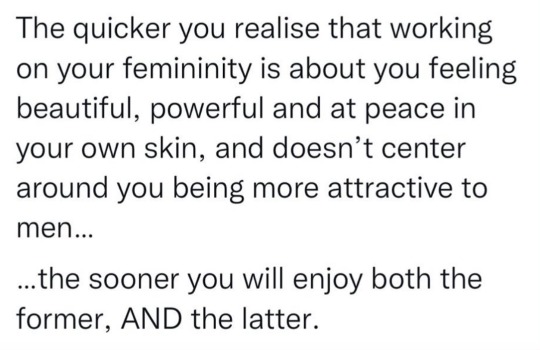
#black femininity#black luxury#energy work#rich black women#black love#law of assumption#pretty privilege#dark skin beauty#law of attraction#divination#law of abundance#self love#beauty#dark skin femininity#higher self#hypergamy#self concept
9K notes
·
View notes
Text
Traits of a high value woman
1. She loves and respects herself
2. She embraces her femininity
3. She knows her worth
4. Shes sexually confident
5. Shes happy on her own
6. She has strong self esteem
7. Shes self sufficient
8. She has her own life
9. She has high standards
10. Shes kind
11. Shes emotionally intelligent and stable
12. Shes committed to personal growth
13. She knows how to set healthy boundaries
14. She's self aware
15. She knows how to keep her expectations in check
16. She takes care of herself
17. She embraces her vulnerability
18. She's comfortable expressing herself
19. She doesn't chase men
20. She understands her purpose in life
21. She dresses well
22. She’s educated
23. She gets money
#level up#femininity tips#spoiled black women#pretty privilege#high value woman#self love#motivatedmindset#black girl luxury#leveled up mindset#spiritual growth
540 notes
·
View notes
Text
The most moderate, nuanced and productive people I have discussed the Israel-Hamas war with have been Jews, Israelis, and people with Palestinian family. Everyone directly affected by this just wants it to stop and to have peace and safety in the region in a way that minimises the casualty count.
The most extreme and performative and vile things I've been told are by people who have no connection to this and like to think they are experts because they have covered adjacent topics during learning, or read stuff online.
If all the randos in the west would just shut up for ten minutes and let those of us actually affected, with an understanding of the history of the land and the culture and the generational trauma experienced by Jews and Palestinians alike talk, we might actually have a chance to salvage this and stop it spiraling
#jumblr#antisemitism#i/p#nuance is something so easy to have and yet people choose not to#we are measured and non extreme because we dont have the privilege to be angry.#someone literally said that they wont ensge further with me because the topic makes me emotional#jews get called genocidal#palestinans get called Antisemitic#how about the rest of you shut the fuck up and let the adults talk#maybe youll learn how to problem solve and not be a bigot if you listen to those you so desperately want to hate#its pathetic#we all know hamas doesnt represent all Palestinians#we also know hamas teaches Antisemitism in schools in gaza and the west bank#these two things can and should co-exist in your head#that doesnt meam all palestinians are rabid jew hating murderers#it means the situation is complicated and not black and white and will take more than just screaming for a ceasefire to actually solve#we are not a football for your performative activism
298 notes
·
View notes